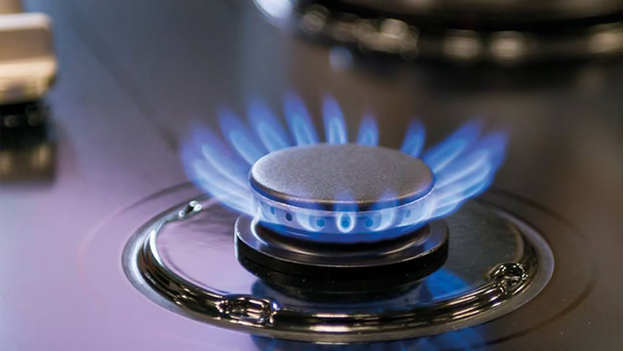There is growing tension in the Liquefied Petroleum Gas (LPG) sector as marketers have kicked against a recent move by Africa’s richest man, Alhaji Aliko Dangote, to crash the price of cooking gas.
Speaking during a tour of his multi-billion-dollar refinery in Lekki, Lagos, Dangote said the current high cost of cooking gas was forcing poor Nigerians to rely on firewood and kerosene. He revealed that the refinery now produces about 2,000 tonnes of LPG per day and plans to increase output to 22,000 tonnes.
To make cooking gas affordable, Dangote warned that if marketers fail to reduce the price, his company would bypass them and sell directly to consumers.
Currently, cooking gas sells for between N1,000 and N1,300 per kilogramme — a price Dangote said he wants to bring down drastically.
But this announcement has sparked backlash from key industry players, who see the move as a threat to their business.
Former Chairman of the LPG and Natural Gas Downstream Group of the Lagos Chamber of Commerce and Industry, Mr. Godwin Okoduwa, described Dangote’s plan as “monopolistic.” He noted that the LPG market has grown from 70,000 metric tonnes in 2007 to over 1.3 million tonnes in 2022, thanks to years of effort and partnership with government agencies and private investors.
“No one should be allowed to take over the market after others have built it,” Okoduwa said. “Dangote should work with existing players to grow the market, not push them out.”
He added that Nigeria still has a low per capita LPG consumption rate and should focus on expanding infrastructure, especially in under-served areas like the Northeast.
Also reacting, the Executive Secretary of the Nigerian Association of Liquefied Petroleum Gas Marketers, Mr. Bassey Essien, questioned the feasibility of Dangote’s plan to sell gas directly to consumers.
“It’s not realistic,” he said. “Even with petrol, has his refinery been able to sell to ordinary Nigerians at a cheaper rate?”
Dangote’s plan also comes amid preparations to begin direct nationwide supply of petrol, diesel, and aviation fuel in August using over 4,000 CNG-powered buses recently procured by his group.
While many Nigerians may welcome cheaper gas, industry players warn that ignoring collaboration could destabilize a market that has taken years to build.

